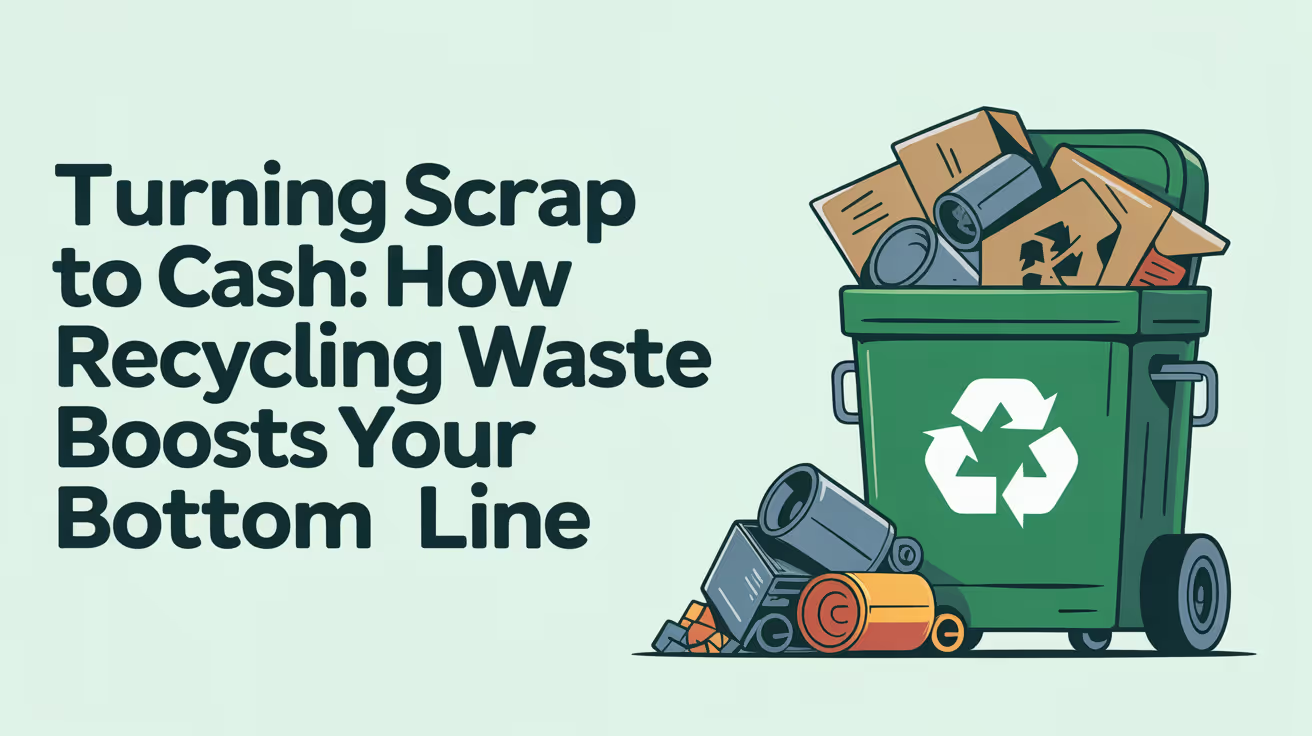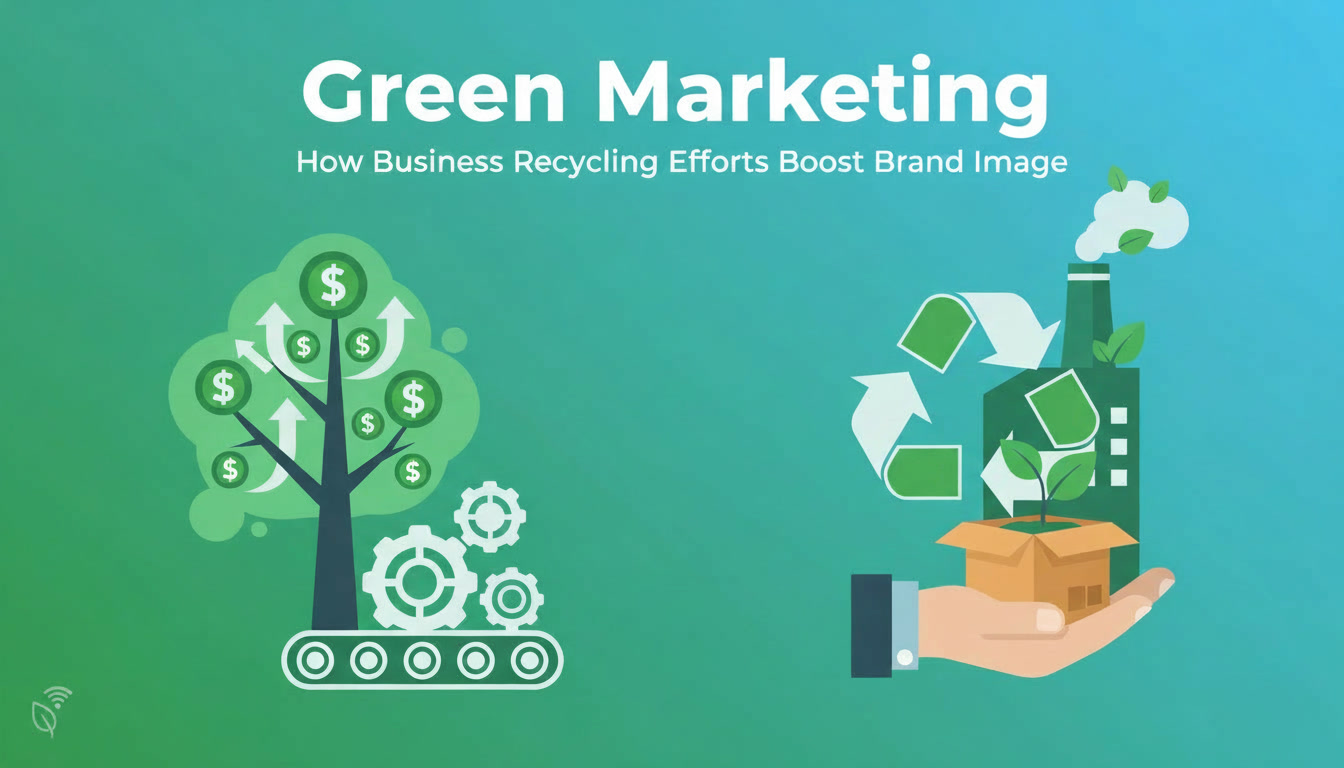How Recycling Waste Boosts Your Bottom Line
Running a business means managing costs at every turn. But what if your waste could become revenue? For businesses that generate bulk recyclables—from tire centers to hospitals—recycling programs can reduce disposal costs and create new income streams.
The Hidden Value in Your Business Waste
Most businesses pay to dispose of waste without realizing its potential value. Common recyclable materials like cardboard, aluminum, copper wire, and scrap metal have real market value. When you partner with a professional recycling service, these materials transform from costly waste into profitable assets.
Consider how recycling impacts your budget. First, you eliminate disposal fees. Second, you receive payment for recyclable materials. This combination can improve your monthly cash flow significantly.
Materials That Generate the Most Scrap Revenue
Different materials command different prices in the recycling market. Understanding these values helps you maximize returns from your recycling program.
High-Value Metals Copper and brass typically offer the highest returns. Insulated copper wire, commonly found in construction and electrical work, maintains strong market demand. Aluminum, while lower in price per pound, often generates solid revenue due to higher volumes.
Volume Materials Cardboard bales from retail operations and grocery stores provide consistent revenue when properly managed. The key is maintaining clean, dry material and accumulating sufficient volume for efficient processing.
Specialized Items Some businesses generate unique recyclables. Hospitals produce specific metal equipment waste. Construction sites yield various metal grades. Tire centers accumulate steel belting and other materials. Each industry has its own valuable waste streams.
Setting Up an Effective Recycling System
Success in business recycling starts with proper organization. Here's how to build a system that works:
Start with an Assessment Document what materials you generate and in what quantities. Track disposal costs for one month. This baseline helps measure the impact of your recycling program.
Create Collection Points Designate specific areas for different recyclable materials. Clear labeling prevents contamination, which preserves material value. Train your team on proper sorting—clean materials command better prices.
Choose the Right Partner Look for recycling services that offer mobile, on-site collection. This saves you transportation costs and time. Flexible scheduling ensures pickups align with your operational needs. Value-focused pricing means you get fair market rates for your materials.
Industries That Benefit Most from Recycling Programs
While any business generating waste can benefit from recycling, certain industries see exceptional returns:
Construction Contractors Job sites produce substantial scrap metal, copper wire, and other valuable materials. Regular recycling keeps sites clean, meets environmental requirements, and generates project revenue.
Retail and Grocery Stores High volumes of cardboard create consistent recycling opportunities. Proper baling and storage systems turn this everyday waste into reliable income.
Healthcare Facilities Hospitals generate various recyclable materials while maintaining strict compliance standards. Professional recycling services help manage this balance effectively.
Tire Centers Beyond rubber recycling, tire centers accumulate steel belting and wheel weights. These materials add up to meaningful revenue over time.
Maximizing Your Recycling Revenue
To get the most from your recycling program, follow these proven strategies:
Maintain Material Quality Keep recyclables clean and separated. Mixed or contaminated materials receive lower prices. Store materials in dry areas to prevent degradation.
Accumulate Strategic Volumes While regular pickups keep your space clear, accumulating certain materials can yield better pricing. Work with your recycling partner to find the right balance.
Stay Informed on Market Conditions Recycling prices fluctuate with market demand. Understanding these trends helps you time larger volume sales for maximum return.
Document Everything Track weights, prices, and pickup schedules. This data proves the value of your program and identifies opportunities for improvement.
Beyond the Bottom Line: Additional Benefits
Financial gains are just part of the recycling story. Your program also delivers:
Space Optimization Regular recycling pickups free valuable storage and work areas. This improved organization can boost operational efficiency.
Compliance Confidence Many industries face environmental regulations. Documented recycling programs demonstrate environmental responsibility and help meet regulatory requirements.
Employee Engagement Teams take pride in working for environmentally conscious companies. Recycling programs can boost morale and support recruitment efforts.
Customer Appeal Today's customers value sustainability. Your recycling commitment can become a competitive advantage in winning and retaining business.
Getting Started with Professional Recycling
Ready to turn your business waste into revenue? Start with these steps:
Audit your current waste streams and disposal costs
Identify recyclable materials in your operations
Contact professional recycling services for assessment
Implement collection and storage systems
Train your team on proper procedures
Monitor results and adjust as needed
The transition from waste disposal to recycling doesn't happen overnight. But with the right partner and system, businesses consistently reduce costs and generate new revenue.
Making Recycling Work for Your Business
Every business has unique waste streams and operational needs. The key is finding a recycling solution that fits your specific situation. Mobile recycling services offer the flexibility many businesses need, providing on-site collection that saves time and reduces logistics challenges.
For businesses generating aluminum, brass, copper, insulated wire, and other valuable materials, professional recycling isn't just an environmental choice—it's a smart financial decision. When you combine eliminated disposal fees with material payments, the impact on your bottom line becomes clear.
Transform your approach to business waste. Partner with experienced recycling professionals who understand your industry's needs and can help maximize the value of your recyclable materials. Your waste stream could become your next revenue stream.
References:
1. U.S. Environmental Protection Agency. (2020). Recycling Economic Information (REI) Report. EPA.gov
2. U.S. Environmental Protection Agency. (2018). Facts and Figures about Materials, Waste and Recycling. EPA.gov
3. AAA Polymer. (2019). "Does Commercial Recycling Really Save Companies Money?"
4. Global Trash Solutions. (2024). "How Much Does Commercial Waste Collection Cost?"
5. Business Waste UK. (2025). "Commercial Waste Collection Costs"
6. RTS. (2024). "Is Recycling Worth It? Costs and Benefits of Recycling"



